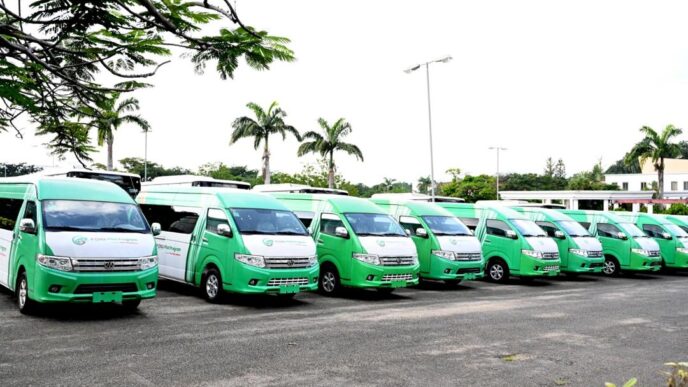Along the Gubio road to Kasua fara, an open market where grasshoppers are traded in Borno state, is a military base — the Maimalari cantonment.
The facility speaks to the government’s commitment to the safety of residents; and for traders that daily ply the route, it serves as a crystal reminder of the monumental horrors the state has endured from the Boko Haram insurgency.
The north-eastern state is not new to wanton killings by terror groups, including the Islamic State of West Africa Province (ISWAP), which have endangered farming communities and education.
But despite the precariousness of life in the state, women are changing the narrative, earning a living and building the state’s economy through grasshopper business.
Advertisement
FROM DELICACY TO A MULTI-BILLION INDUSTRY
Although a detailed documented history is nonexistent, the grasshopper trade was said to have started as a “small family interest” and not a buoyant business. More specifically, it began as a delicacy for some people in the southern part of the state interested in consuming the winged creature.
“So, wherever they find it, they go for it and then process it for food at home,” said Abdullahi Usman, president of the Borno Chamber of Commerce, Industries, Mines, and Agriculture (BOCCIMA).
Advertisement
“Then, we have others like us who could not go to the bush to get the grasshopper. Then, they asked why we didn’t present it for sale. That was how it started. So, gradually, people picked an interest: foreigners, and non-indigenes. So it flourished.”
The business has grown and completely spread throughout the north-eastern state since its discovery over 50 years ago.
Despite the large-scale insecurity in the state, Borno is regarded as “the headquarters of grasshoppers trading”, due to the popularity of the business in Maiduguri, the state capital.
TheCable’s investigation revealed that through the business, women and youths in the state are gently plotting their way out of poverty, benefiting from an industry now estimated at N8.6 billion. Thanks to women like Regina Wazani, who play a critical role in the value chain by frying the insects and retailing them to consumers.
Advertisement
THE WOMEN POWERING BORNO’S GRASSHOPPER INDUSTRY
TheCable, in a recent visit to the state, met the women powering the state’s grasshopper industry. Here they are:
WAZANI
As one of the pioneers, Wazani was said to be the second person to ever fry or sell grasshoppers in Wulari, a community in Maiduguri.
Advertisement
She and her friend, Rebecca Buba, whom she fondly called Mama Mbiu, started the business in Wulari 50 years ago. Mama Mbiu passed on in 1999.
Wazani recalled that at the time they started, the grasshoppers were bought and sold in small bowls called ‘mudus’ at N50 — without frying. Then they came up with the idea of processing the insect, which basically entails frying for consumption.
Advertisement
She said the business has grown and is now being exported to neighbouring countries, but it is no longer as lucrative as it used to be.
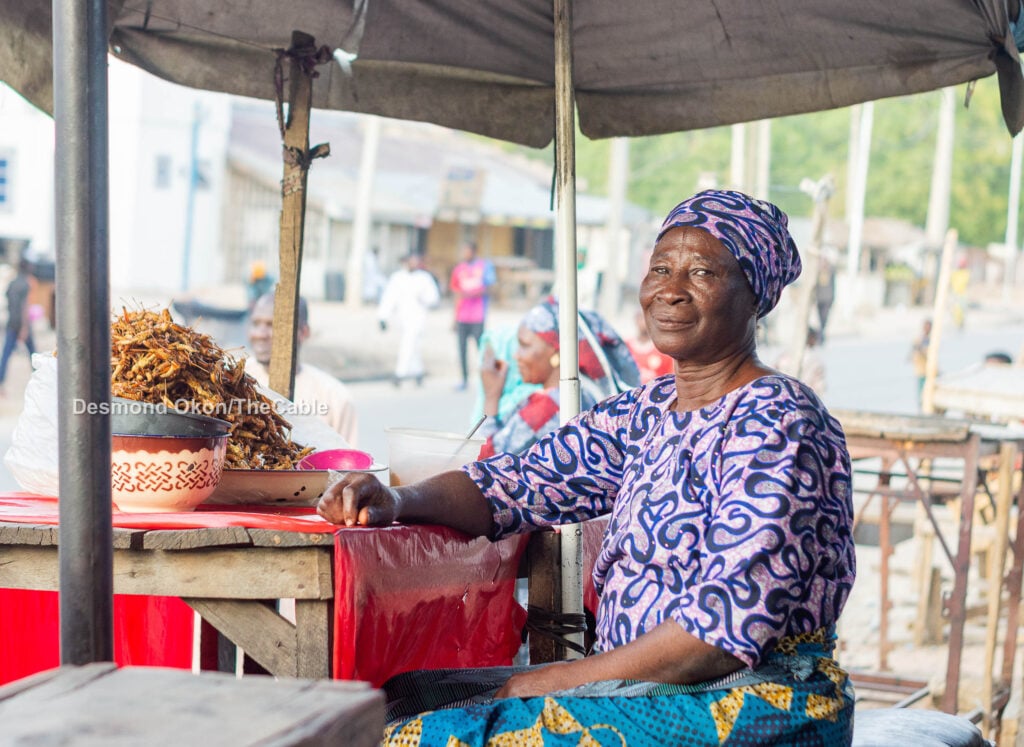
“Back then, the money came in huge sums,” Wazani said.
Advertisement
“I didn’t know how to manage it or what to do with it because the income was beyond measure. There was a lot of market, and the money came in hugely.
“Everything is expensive and the income is not what it used to be. Oil is now expensive. A small jerrycan of oil is N35,000, while a big one is about N55,000.”
Advertisement
Wazani, insisting that the market has crashed, said she earns between N20,000 and N30,000 weekly when business is good and gets about N10,000 weekly on bad days. She has also built a house and trained her children through school from the trade.
Wazani is over 60 years old.
KAUNA DANIEL
For Daniel, who hails from the Marigi tribe, the trade has empowered her to step into the role of her husband, a policeman who was ill.
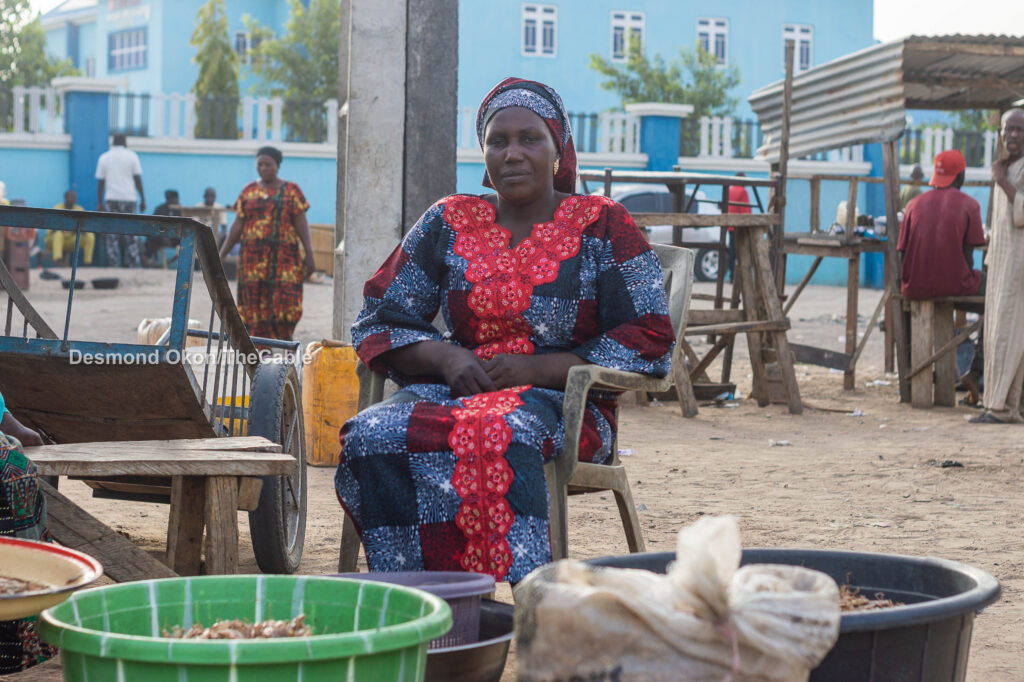
She told TheCable that the business of 21 years gives her anything she needs in life.
“I have trained my five children from primary and secondary school to the university through this grasshopper business,” she said.
According to Kauna, before Nigeria’s economic downturn, she earned between N100,000 and N200,000 weekly. But not anymore.
“The market is not as good as it used to be due to the economic conditions. Now, I get between N5,000 and N6,000,” she said.
ROSEMARY PETER
Also sailing above the country’s economic storm is Rosemary Peter, one of the young females taking advantage of the high appetite for grasshopper consumption in Maiduguri.
Peter, also one of the small-scale traders, said she mainly “takes care of herself” through the business, which she started in 2013.
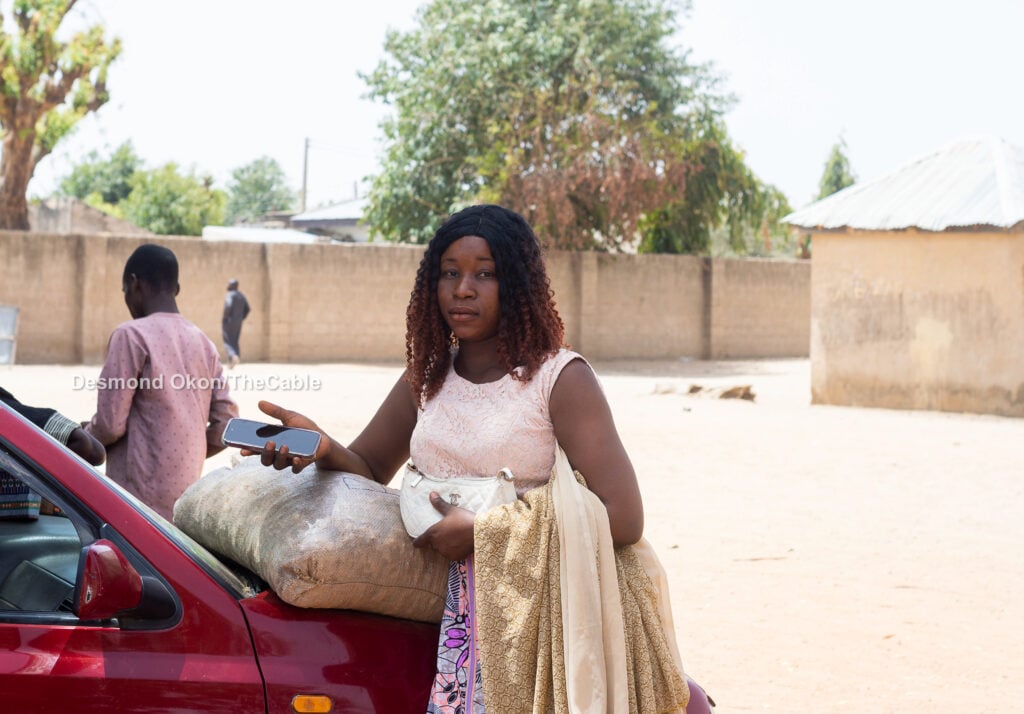
The trader, who rakes in N20,000 weekly, said the business is lucrative but lamented that players are sometimes disdained and disrespected because of the nature of the job.
“When you’re in this kind of business, some people think it can’t sustain you,” she said.
“You just have to be patient and concentrate on your business so that you can get what you want.”
JAGILA BUBA
When Mama Mbiu passed on in 1999 as a pioneer of the trade, she left a house behind, signalling the fruit of her labour. The structure currently houses most of her children. Jagila Buba is one of them.
Buba, now a big grasshopper dealer and the financial officer of the Nigerian Grasshoppers Traders Association (NGTA), finds pleasure in encouraging other women to shun idleness using the success story of her late mother.
She told TheCable that the fara business transformed her family as it helped her mother sponsor the education of all “nine” children since the income of her father, a police officer, was insufficient.
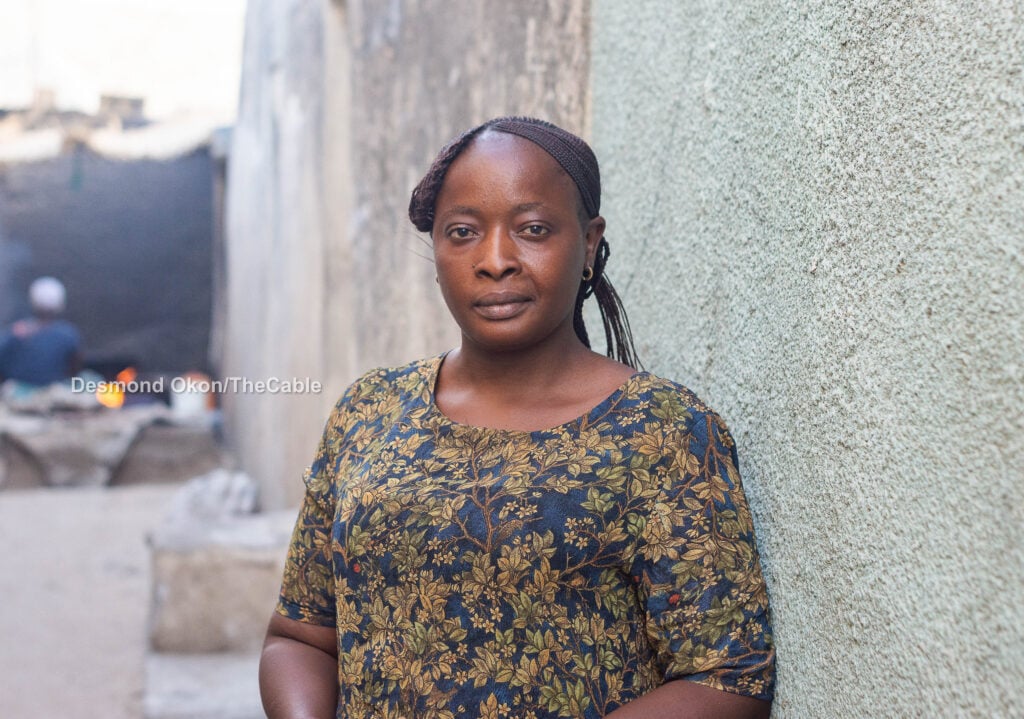
“Some are schooling outside the country. My immediate elder sister is studying veterinary medicine at the University of Stirling. Most of my elder brothers are police and army officers, and we have two lecturers,” Buba said.
“One of my eldest sisters works with the University Teaching Hospital. So, with this experience, honestly, I’m still telling women to hold on to this business. They should not stay idle. Instead, they should try to do all these petty businesses to sponsor their children to school and, at least, life will be better.”
Buba said she earns between N50,000 and N100,000 weekly. Thanks to her mother, who trained the children in the business.
HAUWA IBRAHIM
Ibrahim focuses on the supply side of the business instead of frying and retailing to consumers like most women do.
For Ibrahim, sufficiency began when she entered the industry five years ago, making huge supplies every two or three weeks depending on orders from clients.
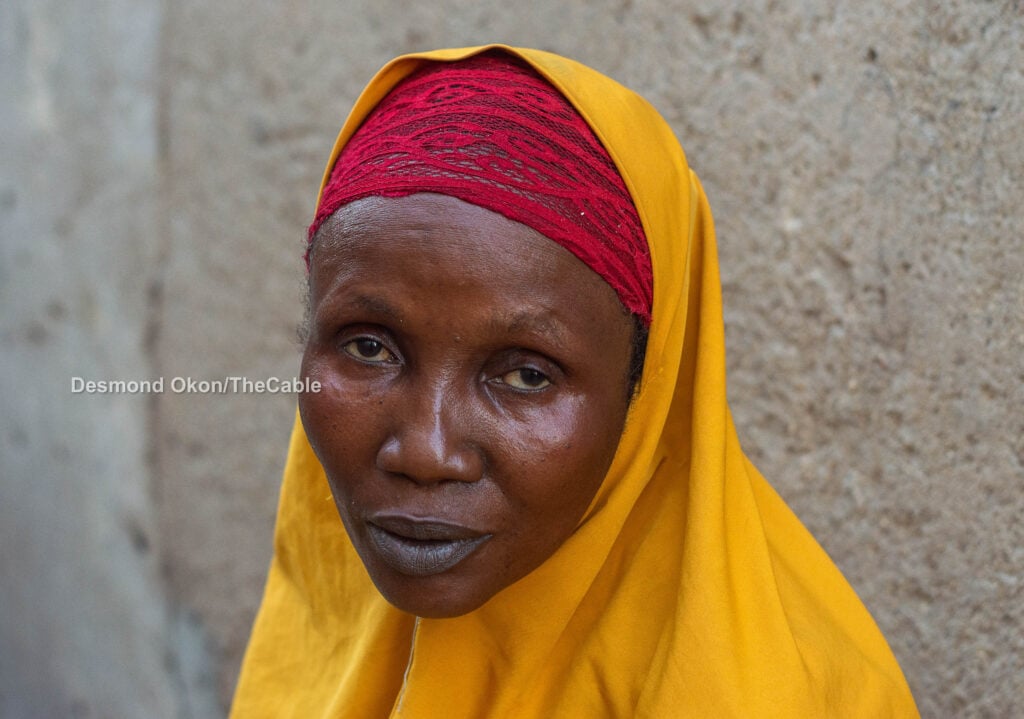
Speaking on profitability, the trader said she makes a modest income, enough to take care of her children, pay house rent, and do other things.
“I’ve spent five years in the business and I’ve never gone out looking for help. I’m able to take care of my needs from the business,” Ibrahim said.
ADAMA IBRAHIM
Aside from frying and retailing the insects, exporting is another revenue channel for traders. Adama Ibrahim said her major customers are in Saudi Arabia, Cameroun, and Chad.
Ibrahim told TheCable that she took up the venture after a protracted period of unemployment and has spent the last 14 years growing her trade.
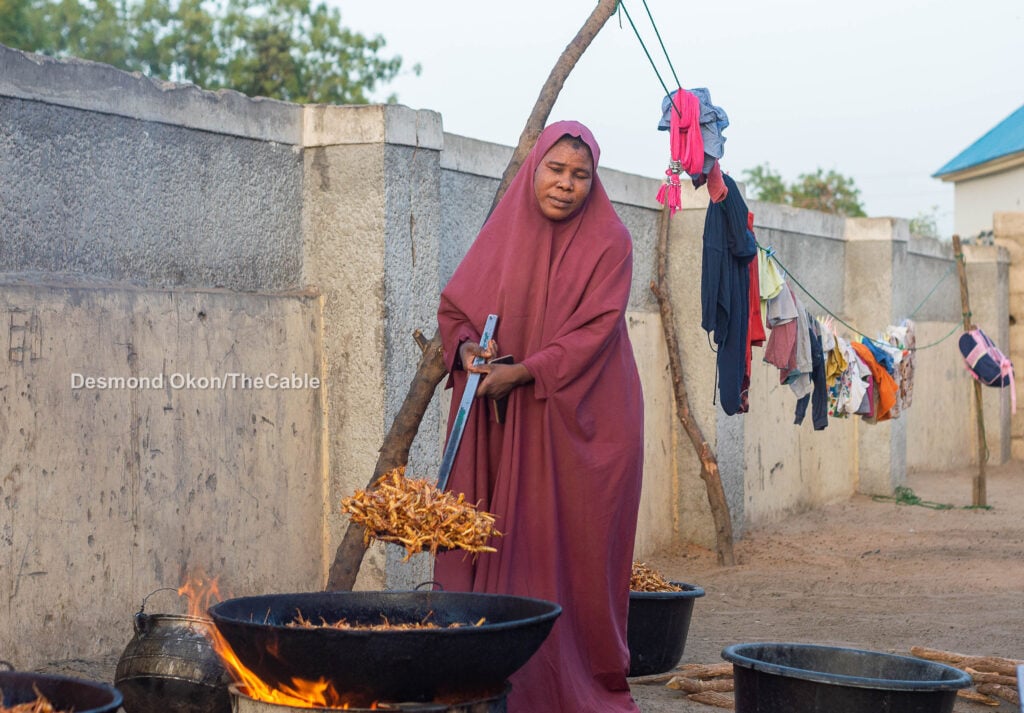
With weekly earnings oscillating between N20,000 and N5,000, she said the business is “good and lucrative” and helps “take care of my daily needs and other responsibilities”.
ELIZABETH AMOS
A new entrant in the industry with just two years of experience, Amos’ sole purpose is to support her mother, following the demise of her dad.
With an income within the region of N25,000 to N27,000 weekly, Amos confirmed that the grasshopper business is profitable.
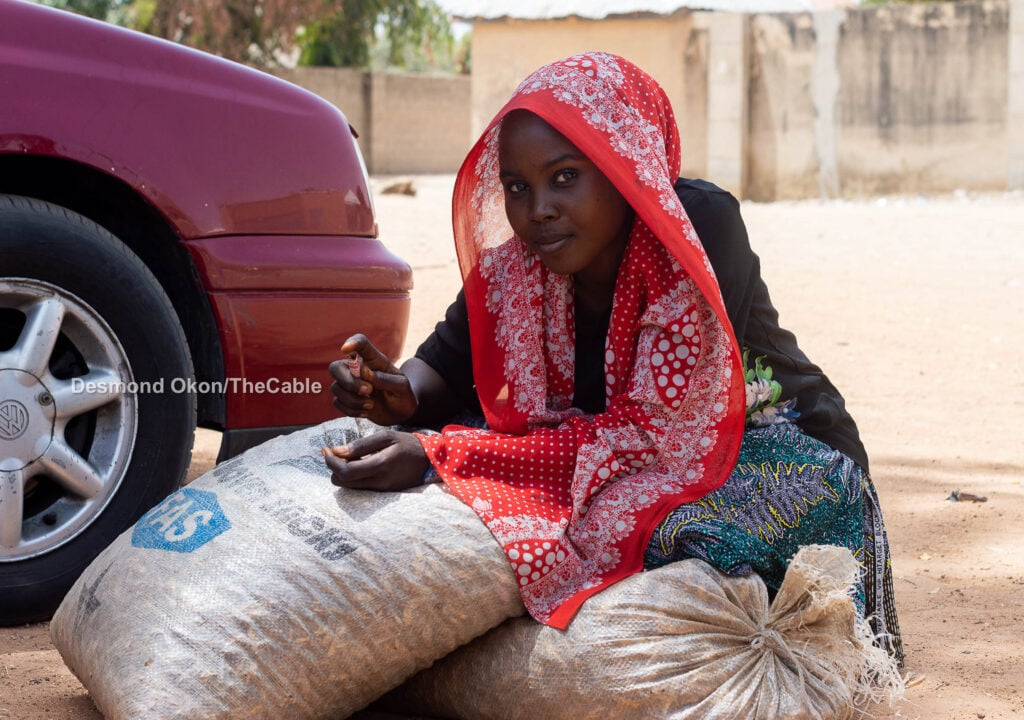
However, she was worried that things had become costly, forcing many people to quit the trade as it is now more expensive.
AMINA BUKARIYAMA
“If you know what is in this fara business, you’ll stop this job you’re doing,” said Amina Bukariyama, a grasshopper trader in Borno.
Bukariyama may have sounded acerbic in her attempt to describe the profitability of the business, but she is one of the most successful grasshopper traders in the community.
Kicking off the venture in 1997, the insect trader now exports grasshoppers to neighbouring countries and delivers to various states across Nigeria.
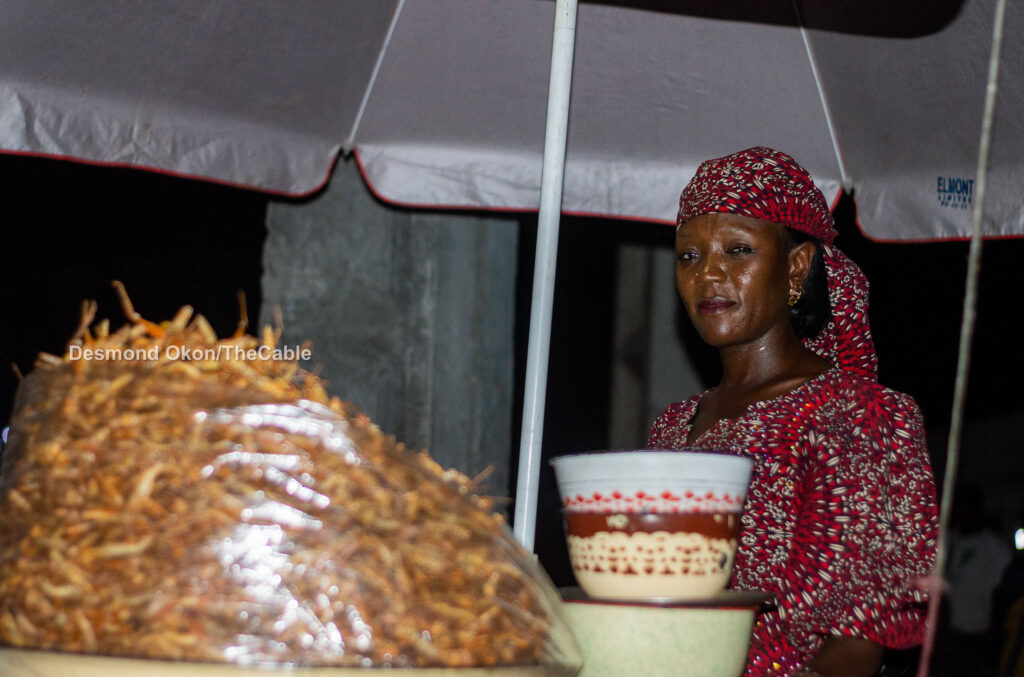
“I also have a customer in Lagos. Sometimes, I send 30 to 35 bags to different states in a day,” she said.
AISHATU UMAR BARBA
The death of her husband, a police officer, and the lack of a job were the signals Barba needed to plunge into the trade — if she must keep up with life’s insatiable demands.
She began trading grasshoppers in 1990, rising to the post of chairing the women’s arm of the NGTA. Barba is said to be well accomplished in the business, but as the leader of the pack, she is more concerned about the sustainability of the industry.
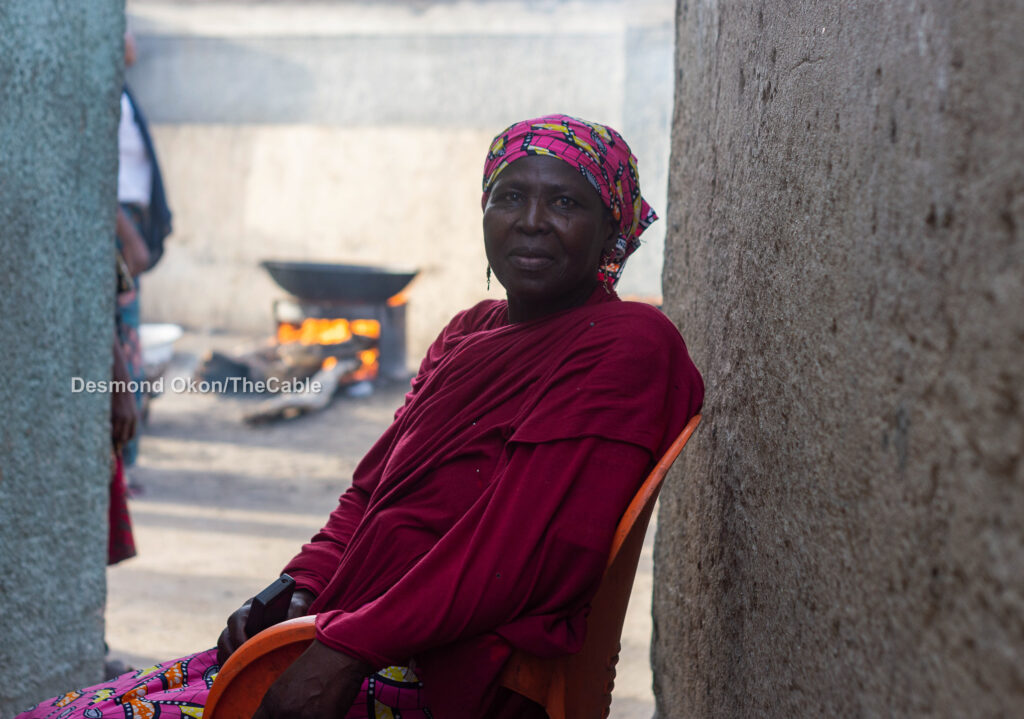
She said many traders lack the capital to sustain their businesses. But more troubling is the lack of a market facility where the business can be done.
“Apart from that, we have widows and orphans who don’t have enough capital to do the business. So, if the federal government can give them small capital to start the business, they will be grateful,” Barba said.




